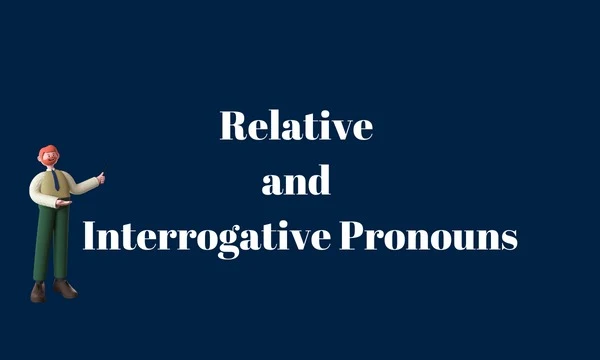Relative and Interrogative Pronouns - 6th Grade Grammar
Introduction:
Does your 6th grader struggle with relative and interrogative pronouns like who, whom, which, and that? This interactive blog post offers a fun multiple-choice grammar quiz to help them master these parts of speech. Through clear explanations, vivid examples, and engaging activities, students will grasp how these pronouns connect clauses and introduce questions. With practice identifying pronoun use in sentences, learners will gain confidence applying these grammar rules. Let’s make pronoun usage fun!
Relative Pronouns
What is a relative pronoun?
A relative pronoun links a clause to another noun or pronoun.
- The girls performed a song that they had chosen.
- The dog ran into a store that had its door open.
- The man who owns the store chased the dog out.
- What was the name of the boy whose dog was missing?
Interrogative Pronouns
What is an interrogative pronoun?
An interrogative pronoun asks a question when a noun in the sentence is not known.
- What happened on the bus yesterday?
- What startled the dog in the first place?
- Which of these streets did it run down?
- What was the name of the boy whose dog was missing?
Note
Who, whom, whose, and which can be used as either relative or interrogative pronouns.
That is a relative pronoun, and what is an interrogative pronoun.
Whose is only used to show possession.
<->
$$
Relative and Interrogative Pronouns Activity
Conclusion
Mastering relative and interrogative pronouns is a vital step in enhancing your grammar skills. These pronouns not only help in connecting clauses but also in forming questions, making your sentences more dynamic and precise. By understanding the roles of pronouns like who, whom, which, and that, students can improve both their writing and speaking abilities. Keep practicing with the activities and examples provided in this post to gain confidence and proficiency in using relative and interrogative pronouns. Remember, the key to mastering grammar lies in consistent practice and application. Happy learning, and may your pronouns always be spot-on!
FAQs
Q: What are relative pronouns?
A: Relative pronouns connect clauses and refer back to a noun in the main clause. Common ones are who, whom, which, and that.
Q: What are interrogative pronouns?
A: Interrogative pronouns introduce questions. Common ones are who, whom, and which.
Q: When do you use who versus whom?
A: Use who as a subject and whom as an object. Example: Who wrote this? To whom should I send it?
Q: Why are these pronouns important in grammar?
A: Using them correctly improves writing clarity and style. This is a key skill.
References:
- Adams, J. (2021). Grammar Guidelines for Kids. Education Press.
- Baker, S. (2020). Pronoun Power: Mastering Pronouns. Scholar Books.
- Hernandez, L. (2022). Grammar Guide for 6th Graders. Classroom Publishing.
- Jones, R. (2019). Improving Your Writing. Top Publishers.

